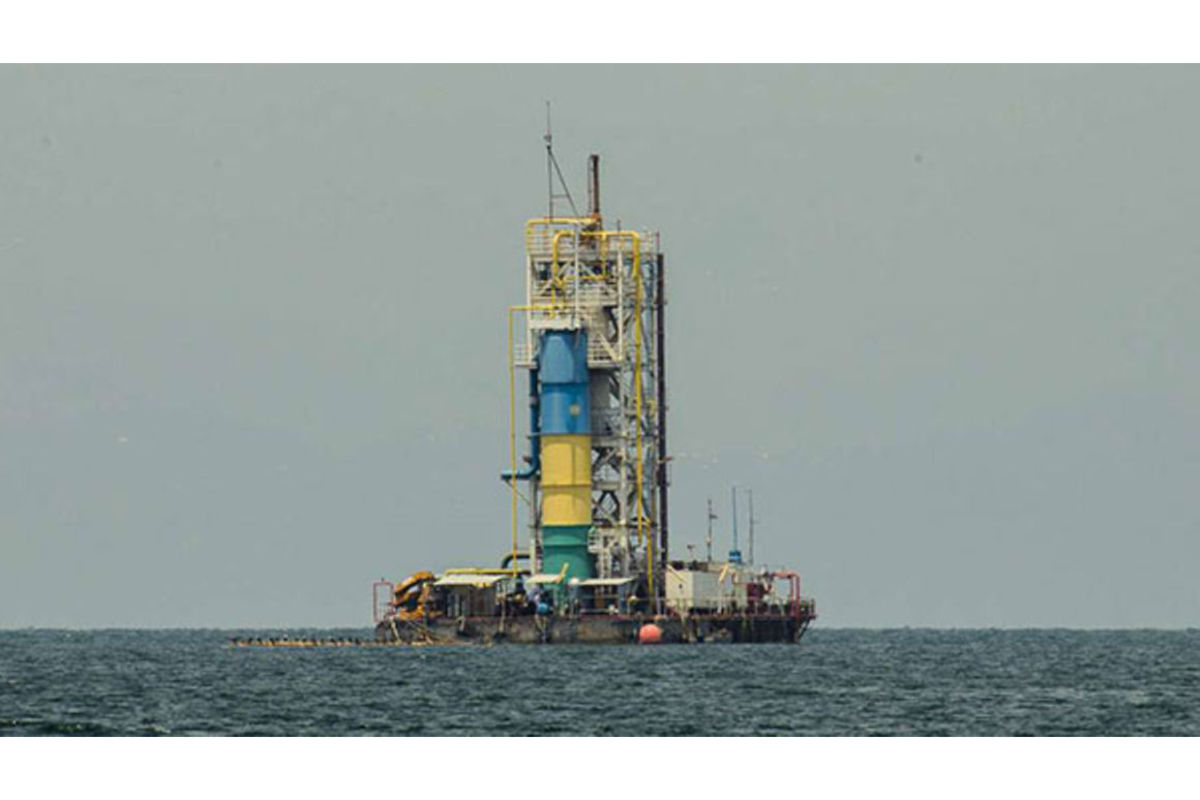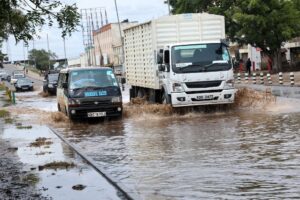
Unguja Zanzibar.
Zanzibar President Hussein Mwinyi on Saturday, April 29, clarified that disagreement on taxes was the main issue that has led to the stalling of oil and gas exploration in Zanzibar by UAE Company RAK Gas.
Speaking to journalists at a monthly briefing at the State House, Zanzibar, Dr Mwinyi said the company approached government seeking a change in the fiscal terms among other issues.
“According to them there was need to change the terms because the offshore exploration was very expensive therefore they proposed 80:20 revenue sharing until they recoup their investments, something that we accepted,” said President Mwinyi, adding that ZPRA and ZPDC were instructed to find ways of how to settle the concern.
He added: After the discovery of gas which was estimated to be around 3.8 trillion cubic feet, according to the Agreement RAK gas was supposed to conduct a 3D seismic study and then drill the first well, something they did not do.
Mr Mwinyi said the company also requested the Zanzibar government to wave all the taxes something that we failed to agree with.
“We told them that what we could do was to defer the taxes but not a complete waiver of all the taxes that they are supposed to pay,” he said.
In November , 2018 RAK Gas, which supplies natural gas to the UAE’s northern emirates and Africa, signed a production sharing agreement (PSA) with Government of Zanzibar.
The deal was signed by the Zanzibar’s Minister for Land, Water, Environment and Settlements Salama Aboud Talib, director general of the Zanzibar Petroleum Development Corporation (ZPDC) Mwanamkaa Abdulrahman Mohamed and chief executive of RAK Gas LLC Kamal Mohamed Ataya at the State House in Zanzibar.
The project was Zanzibar’s “first-ever exploration project”, said RAK Gas co-chief executive Kamal Ataya, whose company signed the agreement to execute the scheme with the Zanzibar government as well as the Zanzibar Petroleum Development Company (ZPDC).
The company signed the rights to explore and develop the Pemba Zanzibar block, which spans 11,868 square kilometers. The value of the deal was not disclosed initially.
The targeted Zanzibar block had by then undergone several field activities including pre-drilling aerial exploration over and deployment of offshore infrastructure for drilling of test wells.
Former holders of exploration rights for the Zanzibar block — Antrim Energy of Canada then described project owners RAK Gas LLC as “the state natural gas utility of the Emirate of Ras al Khaimah in the United Arab Emirates which has interests in two offshore blocks in Ras al Khaimah as well as holding interests in exploration blocks in East Africa and Egypt, including the East Pande block in Mainland Tanzania.”
“The Pemba-Zanzibar block has a proven hydrocarbon system, as evidenced by the Tundaua oil seep on Pemba Island and oil shows in previous exploration wells. Multiple source rocks and petroleum reservoirs are anticipated and numerous prospects have been mapped,” Antrim said then.
Upon the signing of the PSA five years ago, Ras Al Khaimah Company established a subsidiary called RAK Gas Zanzibar on the Isles to meet legal requirements.
Other supporting firms are the UK’s Bell Geospace Enterprises Company Ltd, which conducted the aerial survey beginning early last year, and Brunswick Zanzibar Ltd.
Share this news
This Year’s Most Read News Stories

East Africa Must Prepare for More Extreme Rainfall During the Short Rainy Season – New Study
East Africa has recently had an unprecedented series of failed rains. But some rainy seasons are bringing the opposite: huge amounts of rainfall.Continue Reading

The reason internet speeds in Tanzania still lag behind
Vodacom Tanzania was placed 16th at 17. ’08 Mbps, while Airtel Tanzania was ranked 18th available on 12. 89 Mbps.Continue Reading

‘No Marburg Confirmed In Tanzania’, But Mpox Remains ‘Public Health Emergency’

Monrovia — The Director General of the African Centers for Disease Control, Jean Kaseya, has said the center stands ready to support Tanzania and other countries in the region where suspected cases of the infectious Marburg Virus Disease have been identified. The World Health Organization earlier this week issued an alert warning of a possible outbreak in the country, although the Tanzanian Health Ministry has said tests conducted on available samples did not show the existence of Marburg in the East African nation.
“As of the 15 of January 2025, laboratory results from all suspected individuals were negative for Marburg Virus,” Tanzanian Health Minister Jenista Mhagama said in a statement. This would have marked the country’s second experience with the highly infectious disease that recently killed over a dozen people in neighboring Rwanda. Tanzania previously reported an outbreak of Marburg in 2023 in the Kegara region, said to have been the epicenter of the new suspected cases.
At the Africa CDC online briefing on Thursday, Kaseya also said another infectious disease, Mpox, “remains a public health concern”. He said that while in December 2024, the disease had afflicted 20 countries, a new country – Sierra Leone – has been added to the number after recent outbreak there. Sierra Leonean health authorities said on January 10 that two cases of Mpox had been confirmed in the country and dozens of contacts are being traced.
With thousands of confirmed cases of Mpox across Africa and more than 1000 people having died of the disease – mainly in Central Africa – Kaseya emphasized the need to increase testing, a theme he’s heralded before. The Africa CDC boss said over the next few months the continental health watchdog will deploy additional epidemiologists and community health workers to areas considered hot spots of infectious diseases in the region.
Source: allafrica.com










